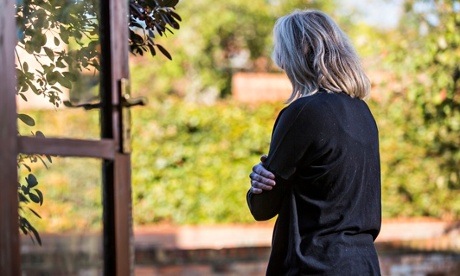
In an Australian first, women in New South Wales who are concerned that their partner may have a violent past may soon be able to apply to police for access to their criminal histories.
On Friday the NSW premier, Mike Baird, said if his government was re-elected on March 28 it would pilot a register of domestic violence perpetrators, based on a similar scheme in the UK known as Clare’s Law.
The UK scheme, implemented last year, gives people the right to ask police about their partner if they are concerned they may pose a risk to them.
It was named after Clare Wood, who was murdered by her partner who had a history of violence against several women.
Baird said the pilot program would also give family violence and social service agencies the ability to disclose to the register information that someone was at risk of harm from their partner.
“This is a simple but powerful measure that provides people with the opportunity to find out if their partner has a violent past, and empowers decision-making about the future of relationships,” Baird said.
“The [UK] disclosure process also brought potential victims and perpetrators to the attention of police and support services, channelling referrals to behaviour-change programs and counselling.”
A re-elected Liberal government would also add the prevention of domestic violence and sexual assault to the portfolio of the minister for women, currently Pru Goward, Baird said.
A dedicated minister was something an alliance of domestic violence groups planned to call for on Monday when they release their list of 27 priority areas for the next government.
Moo Baulch, the chief executive of Domestic Violence NSW, said while a domestic violence perpetrator register was not on that list of election asks, she welcomed the announcement.
“It will depend on good collaboration between parties, including the police and women’s services,” Bauch said.
“I know in the UK, family members are also able to make an application to the police for information if they have concern about a family member in an abusive relationship, and all applications are considered by a panel who decide whether that information will be released, and who it should be released to.”
While Domestic Violence NSW would like more information on how the scheme would be rolled out, Baulch said it would likely be intended to capture the names of serious and serial offenders.
She said the register fit well with the prime minister Tony Abbott’s commitment to work with the Coalition of Australian Governments [COAG] to implement a national intervention order scheme, where an order made in one jurisdiction to prevent a perpetrator from contacting their victim would apply across the country.
“We’ve also seen the opposition leader, Bill Shorten, call for a national summit on domestic violence which we support, because we really need strong leadership on this issue across government,” Baulch said.
“We have the opportunity to shift this problem significantly within a generation if we allocate the right resources towards what we know works, including early prevention and intervention programs.”
Last year the NSW police commissioner, Andrew Scipione, told Fairfax Media police across the state dealt with an average of 370 instances of domestic and family violence every day.
Violence against women is the biggest contributor to ill health and premature death in women aged 15–44 across Australia, figures from VicHealth show.
